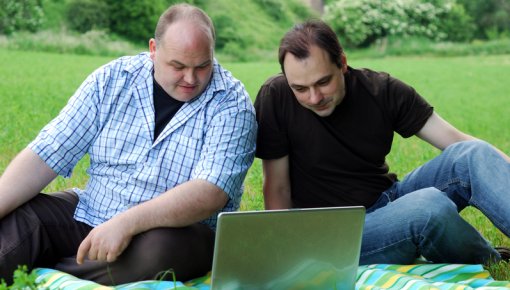Major weight gain after military service
I ended up in the military by accident. Then I stayed for twelve years. That whole time, I fought against weight gain. But because we exercised a lot, I was able to keep my weight down to about 105 to 110 kilograms. That was alright.
But after I was discharged, every job I held involved a lot of sitting. That’s when it started: My weight went up to nearly 160 kg.
Actually, I felt okay back then. I didn't have any problems, I felt good, and I had convinced myself that I didn’t weigh that much, and that there were other people who were much heavier than I was. But deep down, I knew that I was doing poorly, and that being overweight was bad for my health. I did feel the weight, especially in my bones, and in my tendons and ligaments. That’s a major strain on the body, after all. I don’t even remember how I managed everything back then. Over time, you get very good at glossing things over. It’s hard to stop doing that. I always told myself that all I needed to do was lose 5 kg, and then things would be alright. But instead of losing weight, I kept gaining it.
With diets, I lost 30 kg or 40 kg every now and then. As soon as I stopped dieting, I would gain weight again. I don’t even remember how many kilos I lost and gained back in those seven to eight years.
When I switched jobs again, I noticed that I ate even more when I was stressed. At that time, I did a lot of traveling and would always come home late. I wouldn’t cook but would often order one or even two pizzas.

